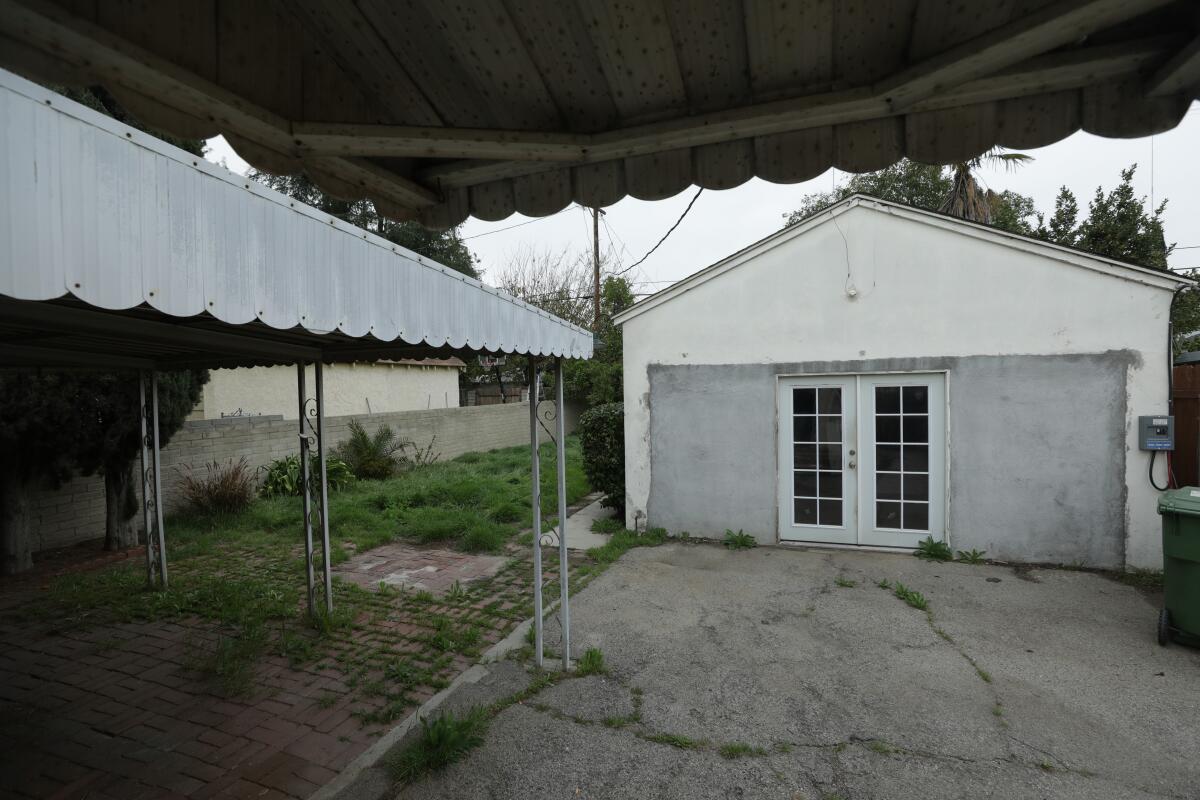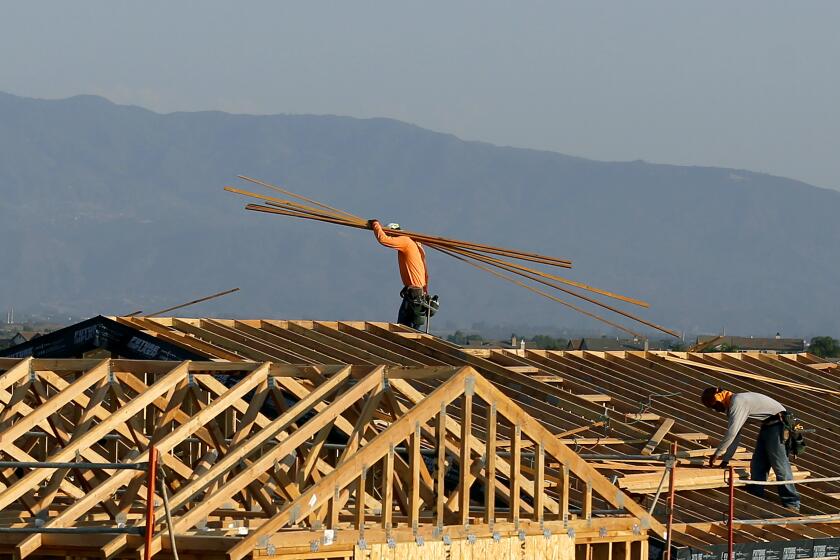L.A. can make it easier to legalize backyard homes

- Share via
Over the last five years, California has made it much easier to build backyard houses and apartments with the goal of adding “gentle” density to neighborhoods that often barred multi-family housing. State legislators have passed laws requiring cities to cut fees, streamline permits and remove barriers so property owners could create new accessory dwelling units or, in many cases, legalize existing unpermitted units.
And it’s worked. California has permitted more than 60,000 ADUs, according to some estimates since the laws were loosened. In the city of Los Angeles, property owners have submitted nearly 27,000 applications for ADUs. But there’s still enormous untapped potential in L.A., where there is an informal economy of unpermitted units that may or may not be occupied.
Los Angeles Councilmember Monica Rodriguez introduced a motion earlier this month directing city departments to look at removing barriers to legalizing conversions, including creating a temporary amnesty program that would let property owners legalize their unpermitted units without penalty if they commit to keeping the units affordable if used as rentals.
Los Angeles has created an ambitious plan to build more housing, especially affordable housing, throughout the city.
Los Angeles is desperately short of safe, low-cost housing, and accessory dwelling units tend to be priced lower than a traditional house or apartment. If the city can cut through the red tape that discourages property owners from seeking permits, while ensuring units are up to health and safety codes for tenants, it should do so immediately.
UCLA professor Vinit Mukhija estimated in 2014 that L.A. had at least 50,000 unpermitted secondary units on single-family lots. State laws have probably encouraged some property owners to get those units permitted. In L.A. nearly half of ADU applications — 12,400 — were to convert existing structures, such as garages or recreation rooms, into living quarters. (The city data doesn’t indicate whether the conversions are new or existing units coming into compliance.)
It can be complicated, time-consuming and expensive to legalize units, some of which can be decades old. In cases where the original structure, such as a garage, storage shed or home addition, did not have a permit, the city will require the property owner to turn the unit back into a shed or storage shed, get a permit for that use and then begin the application process to turn the space into an accessory dwelling unit. That’s absurd and counterproductive. Not surprisingly, few property owners choose to go through those hoops.
Voters largely backed pro-housing ballot measures and rejected measures aimed at making it hard to build in communities.
Rodriguez’s motion, which was seconded by Councilmember Bob Blumenfield, directs city departments to evaluate what requirements can be waived.
There is a precedent. The city used to lose about 400 to 500 units of housing each year when inspectors discovered unpermitted apartments and required property owners to dismantle them. In 2017, the City Council adopted an amnesty program to let property owners legalize unpermitted units that met building code requirements if the property owners agreed to rent the units to low-income tenants.
The program has had limited success, however, because it only applies to illegal conversions in areas zoned for multi-family housing — not single-family neighborhoods where there are lots of unpermitted backyard homes — and some property owners didn’t want to commit to keeping the units affordable under a 55-year covenant with the city. The affordability requirement seems like a fair trade since property owners will save time and money under the amnesty program; nevertheless, the City Council should evaluate whether it will deter people from legalizing unpermitted units.
Accessory dwelling units are a relatively easy way for Los Angeles to add more housing at lower cost. It makes sense to do everything possible to encourage property owners to bring their unpermitted units and tenants out of the shadows.
More to Read
A cure for the common opinion
Get thought-provoking perspectives with our weekly newsletter.
You may occasionally receive promotional content from the Los Angeles Times.











